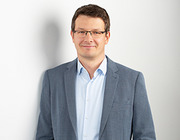The number of municipalities that publish their data as open data is growing slowly but steadily. Open data portals are the most visible sign of a local government's open data activities. In some cities, civil society actors (often actors organized in the Open Knowledge Foundation's OK Labs) have developed applications on a voluntary basis with the aim of creating added value for the citizens of the municipality. The provision of open data is a value in itself, above all for reasons of transparency. Positive effects, however, will ultimately result if something useful is developed from this data.
Together with the GovData coordination office at the Hamburg Senate Chancellery, we hosted the workshop "Promoting Open Data in Municipalities" which brought together more than 20 experts from the open data community on 18 September in Cologne.
Municipal representatives responsible for digitization were joined by software developers and specialists from OPEN.NRW, Open Knowledge Foundation, Fraunhofer IESE, Technologiestiftung Berlin and Konrad-Adenauer-Stiftung to examine three ideas in particular:
- Development of a sample data catalogue for open data sets in Germany
- Development of a platform for municipalities that can increase open data activities or the number of useful applications at the municipal level
- And, especially, identifying how it is possible to communicate the opportunities open data offers municipalities to the public
The planned development of a model data catalogue for open data sets in municipalities met with great approval at the workshop. As part of a nationwide analysis, open data records are to be made available within a comprehensible system in order to enable as many local actors as possible to begin providing and collecting open data. Methods will also be considered for helping open data find its way into the concrete work processes of public administrators in addition to simply being made generally available. According to the workshop participants, the next development steps would be to take the user's perspective and to research what should be made available as open data to meet the public's needs.
Another just as intensively discussed topic was how municipalities can come into closer contact with the open data community, so that coders, start-ups, students and others can develop additional useful open data applications together with municipal actors. Numerous starting points for better networking were also discussed. As a result, a website is to be created that promotes networking between actors in the community and public administrators. So-called "Mayor Challenges" can be used in this regard, as can competitions. Above all, the fellowship program used by Code for America, a very successful initiative in the United States, was translated to reflect German contexts and further developed. In the US, digital experts from academia and the coder community come together in communities for a limited period of time to work with municipal actors on digital solutions that address select topics.
The above approaches will be further concretized by the project team until January and then discussed with the experts.
![[Translate to English:] eine Person hält einen Block mit einer Skizze mit vielen bunten Zeichnungen. In der anderen Hand hält sie eine Kaffeetasse.](/fileadmin/files/_processed_/a/d/csm_chart-coffee-cup-970204_ST-LK_Original_81377_2b965f42eb.jpg)




